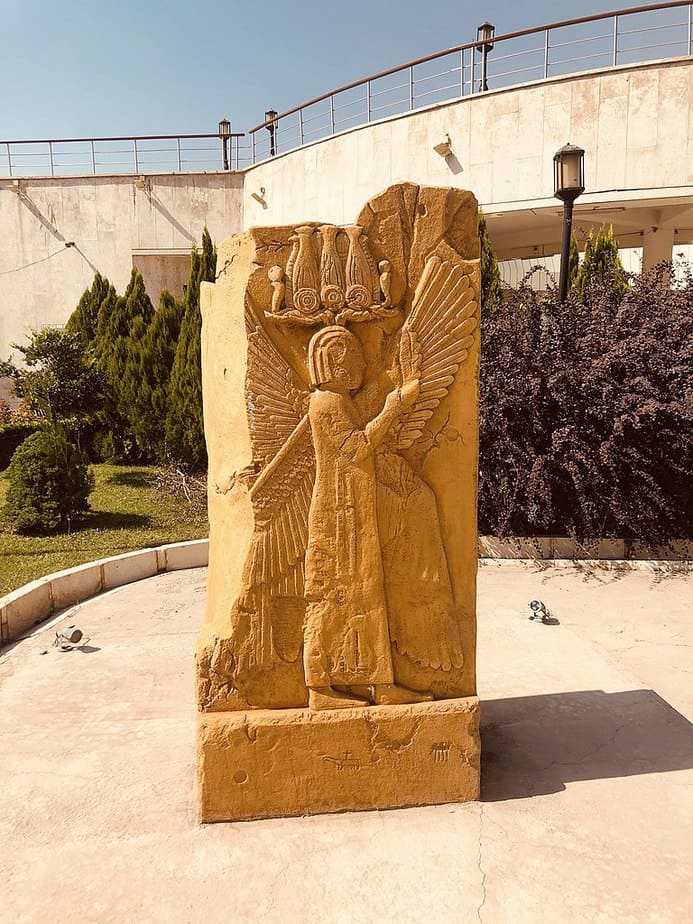Top 10 Facts about Cyrus the Great
Top 10 Facts about Cyrus the Great
Cyrus II of Persia, commonly known as Cyrus the Great, and as Cyrus the Elder to the Greeks, was the founder of the Achaemenid Empire, the first Persian Empire. Cyrus the Great ruled in at a time before there was Julius Caesar or Alexander the Great. The king of the Persian Empire inspired several leaders for centuries to come, including Founding Father Thomas Jefferson. But despite his legendary status, few people today know about Cyrus the Great’s history. Not only did Cyrus establish the Achaemenid dynasty, but he also implemented rules and structures that guided empires centuries later. He was such a cunning leader that he defeated the Lydian Empire with camels alone. Read these incredible facts about Cyrus the Great and you’ll pick a new favourite emperor. Let’s take a look at the top 10 facts about Cyrus the Great.
1. The debate about the meaning of his name
People have debated the meaning of Cyrus’s original name for centuries. Various languages ascribe different meanings to the name. According to Plutarch, Cyrus was named after the Sun, or “Kuros.” This was acknowledging the Persians’ culture as it had longstanding worship of the sun, making it seem plausible. However, another theory put forward claims that Cyrus’s name derived from an ancient Indo-European word which means “to humiliate.”
2. The story of his birth
It is not stated the exact year Cyrus was born, but historians have determined that he came into the world at some point between 598 and 600 BC. We also do not know exactly where Cyrus was born, but it is thought to be either the city of Media or Persis.
3. Cyrus was ‘great’
Cyrus the Great was the founder of the Achaemenian Empire. His empire, stretching from the Aegean Sea to the Indus River, was the largest that had ever existed at the time of his rule. Cyrus pieced his kingdom together using a mixture of conquest and diplomacy, attesting to his skills as a warrior and a statesman. His reputation as “great” was probably enhanced by the extent to which his figure was mythologized. The Greek historian Herodotus recorded one of the most well-known legends about the ruler in his History.
4. He was destined to become King
Cyrus the Great is said to have overthrown his grandfather Astyages. He then went on to unite the latter’s Median kingdom with the Persian one he inherited. Herodotus wrote in a recognizably mythic approach: King Astyages has a dream that his grandson Cyrus would usurp him. Astyages tries to forestall the events of the dream but instead brings them to fruition. Alternate versions of Cyrus’s life can be found in other Classical texts, such as works by the Greek historians Xenophon and Ctesias, both of whom lived not long after Herodotus.
5. Cyrus was a military leader
Cyrus’s career as a military leader began in earnest in 550 BCE, when he rose up against his Median overlord (and by some accounts, his grandfather), King Astyages. Cyrus led other much-mythologized campaigns during his reign, such as his conquests of Lydia and Babylonia. An account of the latter appears in the Bible: Cyrus is the ruler that liberated the Jewish people from their Babylonian captors. Our knowledge of his reign after this point is vague, although it’s likely that he died while undertaking campaigns on his eastern frontier.
6. Cyrus is quite documented in history
The Greek historian Herodotus provides the most famous account of Cyrus’s life in his History, a work that was probably as much fiction as it was fact. Later writers in antiquity also took part in lionizing Cyrus, sacrificing historical accuracy in the process. In the 4th century BCE, Xenophon wrote a biography that framed Cyrus as the ideal ruler; Ctesias also wrote about Cyrus’s life in the 4th century, offering an account that diverges notably from Herodotus’s. Cyrus also appears briefly in the Bible as the ruler who freed the Jewish people from captivity in Babylonia.
7. He is a figure in the Hebrew Bible and other documentaries
Several Jewish historians wrote accounts about Cyrus the Great, the Bible is one account of his rule. In the Ketuvim, Cyrus decrees that all exiles may return to the Promised Land and rebuilt their temples. Isaiah refers to Cyrus as a Messiah–literally, “His anointed one” in Isaiah 45:1. He is the only gentile to be given that honour. In the Second Chronicles, Cyrus is quoted as to praise God (2 Chronicles 36:23). However, there is no historical evidence that Cyrus practised any religion. Professor Lester L. Grabbe argues that Cyrus made no “decree” for the Jews, as stated in the Book of Ezra, but he did have a policy that allowed them to return and rebuild their temples.
8. He was a loved leader
Cyrus the Great was loved by the Persians. After his death, the Greeks grew to adore him as well. Alexander the Great became fascinated with Cyrus after he read a biography about him, Xenophon’s Cyropaedia. Xenophon admired Cyrus so much that he labelled him as the ideal ruler. Another Greek historian, Herodotus, wrote an extensive biography about the Persian king. For years, readers referenced Herodotus’ work as the primary account of Cyrus’s life. Cyrus’ admiration among the Greeks is ironic because he spent the majority of his reign battling them.
9. Cyrus’ death
Little is known about the last years of Cyrus’s life, and various contradicting stories of his death exist. It’s clear that he died while campaigning on his empire’s eastern frontier, somewhere near the Oxus (Amu Darya) and Jaxartes (Syr Darya) rivers. Herodotus offers an account of Cyrus’s downfall wherein the queen of a nomadic group that Cyrus is trying to conquer, and whose son Cyrus has killed, placed Cyrus’s disembodied head in a bag of human blood to “give [him his] fill”. By Herodotus’s own admission, however, this is only one of several versions of the events that he had come across.
10. Cyrus Tomb has survived the years
Cyrus was buried in his capital city, Pasargadae, in a limestone tomb, between 540 and 530 BC. His tomb was raided several times; one of the most notable moments was after Alexander the Great defeated Darius III’s Persia. Alexander also put in work to restore the tomb’s interior. Cyrus’s tomb has survived through time, internal divisions, regime changes, and revolutions. In 2004, his gravesite and Pasargadae became one of Iran’s UNESCO World Heritage Sites. Part of his inscription reads, “Passer-by, I am Cyrus, who founded the Persian Empire and was king of Asia. Grudge me not therefore this monument.”
Now you know the top ten facts about Cyrus the Great. I hope you enjoyed reading this article.
Planning a trip to Paris ? Get ready !
These are Amazon’s best-selling travel products that you may need for coming to Paris.
Bookstore
- The best travel book : Rick Steves – Paris 2023 – Learn more here
- Fodor’s Paris 2024 – Learn more here
Travel Gear
- Venture Pal Lightweight Backpack – Learn more here
- Samsonite Winfield 2 28″ Luggage – Learn more here
- Swig Savvy’s Stainless Steel Insulated Water Bottle – Learn more here
Check Amazon’s best-seller list for the most popular travel accessories. We sometimes read this list just to find out what new travel products people are buying.














